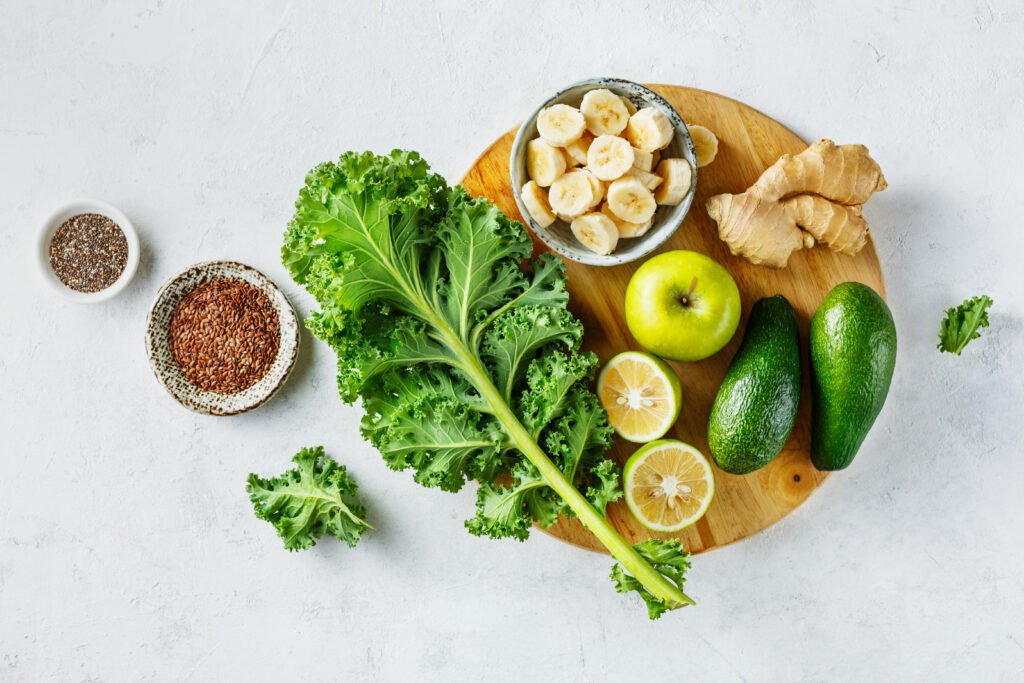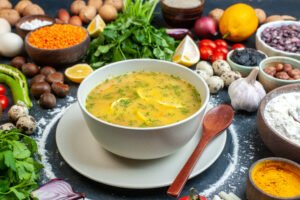
Gastric acid, while crucial for digestion, can sometimes wreak havoc on our gastrointestinal system, causing discomfort, heartburn, and even more severe conditions like gastritis, acid reflux or GERD (Gastroesophageal Reflux Disease).
While medication can offer relief, incorporating certain fruits into your diet can be a natural and delicious way to alleviate these symptoms.
Let’s delve deeper into five fruits renowned for their therapeutic properties in soothing gastritis and fostering digestive wellness.
- Banana: The Gastritis Superstar
Bananas are often hailed as the go-to fruit for gastritis relief, and for good reason. Their soft texture and mild flavor make them gentle on the stomach, providing immediate relief from discomfort.
Bananas are rich in pectin, a soluble fiber that forms a protective layer on the stomach lining, shielding it from excess acidity and irritation.
Furthermore, bananas contain potassium, an electrolyte that helps regulate stomach acid levels, thereby reducing the risk of inflammation.
For optimal benefits, choose ripe bananas, which are easier to digest, and incorporate them into your diet as a snack, smoothie base, or topping for oatmeal or yogurt.
- Papaya: Nature’s Digestive Enzyme
Papaya contains an enzyme called papain, which acts as a natural digestive aid by breaking down proteins and facilitating nutrient absorption.
This enzyme not only eases the burden on the digestive system but also helps alleviate symptoms of gastritis, such as bloating and discomfort.
Additionally, papayas are rich in vitamins A, C, and E, as well as antioxidants like beta-carotene, which support immune function and promote tissue repair.
To reap the benefits of papaya, enjoy it fresh, either on its own or combined with other fruits in a salad or smoothie.
- Watermelon: Hydration and Healing

Watermelon’s high water content makes it an excellent choice for individuals with gastritis, as staying hydrated is essential for maintaining digestive health.
Moreover, watermelon contains lycopene, a potent antioxidant that exhibits anti-inflammatory properties, helping to reduce gastric inflammation associated with gastritis. Additionally, the presence of citrulline, an amino acid, may promote blood flow to the stomach lining, aiding in the healing process.
To incorporate watermelon into your diet, enjoy it as a refreshing snack, blend it into juices or smoothies, or add it to fruit salads for a hydrating and healing treat.
- Apple: Fiber-Rich Digestive Support
Apples are a rich source of soluble fiber, particularly pectin, which acts as a prebiotic, feeding beneficial gut bacteria and promoting a healthy digestive environment.
This soluble fiber also forms a gel-like substance in the stomach, which can help soothe inflammation and alleviate symptoms of gastritis, such as bloating and cramping.
Additionally, apples contain polyphenols, antioxidants that exert anti-inflammatory effects and may help protect the stomach lining from damage.
To enjoy the digestive benefits of apples, consume them with the skin on for maximum fiber content, and incorporate them into your diet in various forms, such as whole, sliced, or blended into sauces and desserts.
- Ginger: The Ultimate Digestive Aid
While technically not a fruit, ginger deserves a prominent place on this list for its exceptional digestive properties.
Ginger contains bioactive compounds like gingerol and shogaol, which exhibit potent anti-inflammatory and antioxidant effects, making it a valuable ally in managing gastritis symptoms.
Moreover, ginger stimulates gastric emptying and intestinal motility, preventing the stagnation of food in the digestive tract and reducing the risk of gastric discomfort.
To harness the digestive benefits of ginger, incorporate it into your diet by brewing ginger tea, adding freshly grated ginger to meals, or blending it into smoothies and juices.
Conclusion
Incorporating fruits into your diet can be a powerful strategy for alleviating symptoms of gastritis and promoting digestive wellness.
Bananas, papayas, watermelons, apples, and ginger offer a wealth of therapeutic benefits, from soothing inflammation to aiding digestion and promoting healing.
By incorporating these fruits into your daily dietary regimen, you can take proactive steps towards managing gastritis symptoms and fostering optimal digestive health.
Remember to listen to your body’s cues and consult with a healthcare professional for personalized dietary recommendations tailored to your individual needs.












